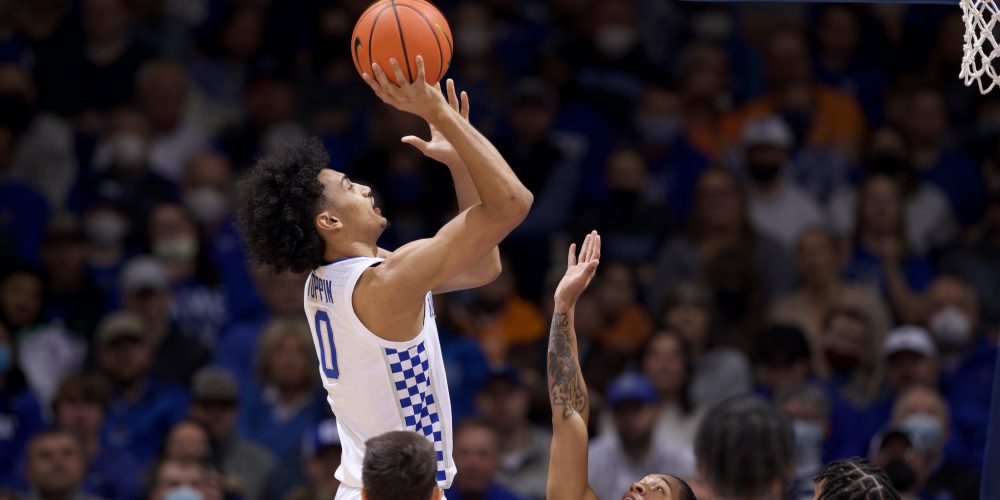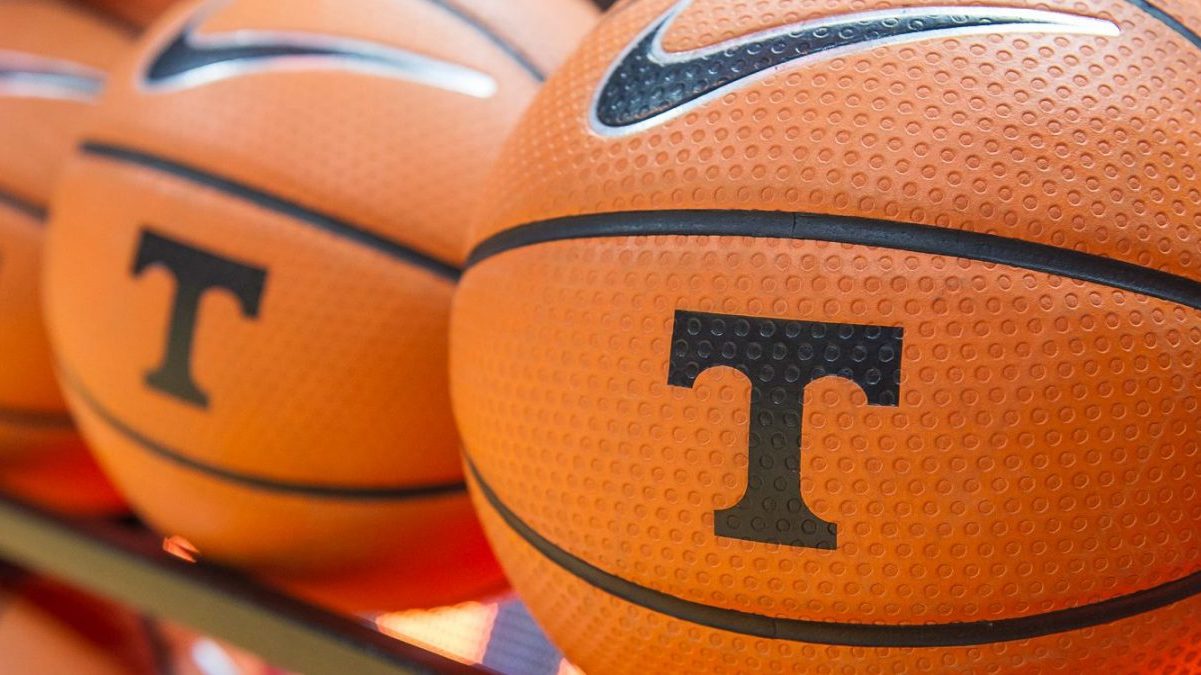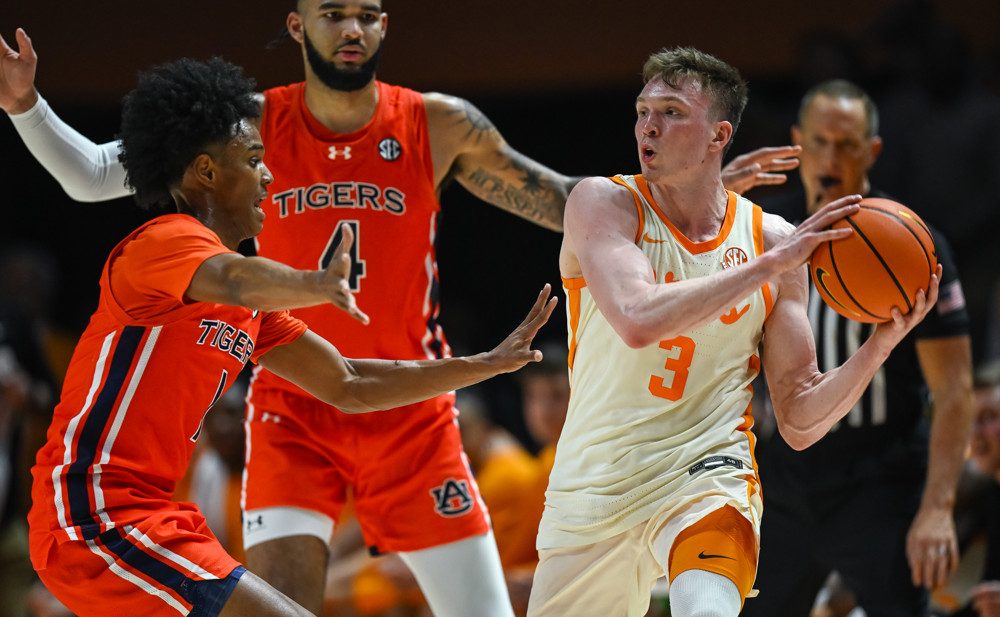I read John Calipari’s postgame quotes after the game on Saturday, curious to see how he described his team shooting 68% from the field.
I’m more concerned with how we play. I’m trying not to make this game-to-game. If you do that, you torture yourself and your team. Are we getting better? Our history is that our teams play better at the end of the year. That’s the history. So, is this team getting better? Are individual players getting better? That’s my focus.
Calipari from UK Athletics
That sentiment can feel like a contrast to a criticism of Rick Barnes, that his teams are better earlier in the year than in March. It’s indeed easier to criticize when you just lost by 28 points. But the whole “playing our best basketball at the end of the year” thing is hard to come by.
Stretching back to the start of Bruce Pearl’s time, how many Tennessee teams were peaking at the right time?
It happened twice with Pearl due to players returning from injury. That was obviously the case with Chris Lofton in 2007, coming back from an ankle sprain when the Vols were 15-8 (3-5), freshly blown out by the defending champs in Gainesville on February 3. With Lofton back, Tennessee finished the regular season 7-1, including wins over Kentucky and Florida in Knoxville. This team still stumbled immediately in the SEC Tournament, but advanced to the program’s second ever Sweet 16 and had 1-seed Ohio State dead to rights from there.
No Tennessee player in my lifetime was as impactful as Lofton, but Brian Williams’ return at the end of the 2010 regular season made that group snap together with the final puzzle piece. Those Vols were 20-7 (8-5) after a loss at Florida, but beat #2 Kentucky in Knoxville and dominated a good Mississippi State team in Starkville to finish 23-7 (11-5). They played their way to the finals of the SEC Tournament – more on that in a second – and, of course, made the program’s only Elite Eight.
And no group was better at peaking at the right time than Cuonzo Martin’s 2014 squad: 16-11 (7-7) and on the hottest of seats after a February 22 loss to Texas A&M. They won four blowouts in a row to close the regular season, lost to #1 Florida in a close game in the SEC semis, then won three games coming out of Dayton and almost made the Elite Eight. In KenPom, they were 26th on February 22 and sixth in the Sweet 16.
Other Tennessee teams who made the NCAA Tournament ran into clear walls at various points. Pearl’s first team was 20-4 and locked up the SEC East with a dramatic win in Gainesville. And from there, I think they were just out of gas: a pair of home losses to end the regular season 1-2, then one-and-done in the SEC Tournament, then a narrow escape against 15-seed Winthrop, and finally bested by Wichita State in the Round of 32. More dramatically, the 2011 team was 7-0, then never won more than three games in a row the rest of the way in Pearl’s final season, finishing 12-15 from there.
And sometimes, it’s more about the schedule than anything else. Take Bruce Pearl’s 2008 squad, which was 25-2 (11-1) and number one in the land after beating Memphis on February 23. From there, they finished 6-3. But the losses came by three points at eventual four-seed Vanderbilt, and by one point to eventual nine-seed Arkansas in the tornado tournament. They got dominated by Louisville in the Sweet 16, for sure. But in those final nine games, they also beat Kentucky at home, won at Florida, and beat a criminally underrated Butler team in the second round of the tournament. I’m not sure they peaked too early, though it’s certainly hard to top winning at #1 Memphis. I think a portion of that had to do with who they were playing when.
If you look at Rick Barnes’ three NCAA Tournament teams at Tennessee, I think they fall into each of these categories.
Almost one year ago to the day, the Vols were 10-1 (4-1) and ranked sixth in KenPom. A shocking 75-49 loss at Florida was the first step of an 8-8 finish, with Tennessee never winning more than two games in a row the rest of the way, trading wins and losses every night from February 10 to the end of the regular season. For what it’s worth, Calipari called last year a throwaway year in the postgame on Saturday when asked about the value of the home crowd at Rupp being back.
The 2019 squad started 23-1 (11-0) before they went to Rupp. They finished 8-5 to the end. But every one of their losses was to a Top 20 team in KenPom; before that February 16 game at Rupp, they played just two of those teams all year (lost to Kansas, beat Gonzaga). And in those final 13 games, Tennessee still beat Kentucky twice, and dominated KenPom #21 Mississippi State twice. It’s not a fun memory, but consider the absurdity Purdue had to get from Ryan Cline to win that game. I don’t think the 2019 team peaked early. I think the schedule revealed more about them.
This could also be true for the current Vols: five losses, all to teams in the KenPom Top 20. Along the way, the Vols also beat KenPom #8 Arizona and #24 North Carolina. We’ve got two more weeks of scheduling madness – at Vandy, LSU, Florida, at Texas – but in February and March, the Vols will currently only face two Top 25 KenPom teams, both home games vs Kentucky and Auburn.
We’ve also seen a Barnes team play its best basketball at the right time. In 2018, the Vols were 19-7 (9-5) after an 11-point loss in Athens, the second defeat in three games after the win at Rupp. It felt like a blown opportunity to win the SEC and earn a high seed. Instead, Tennessee won their last four regular season games, including a big one over Florida and the title-clincher over Georgia. They played their way to Sunday in the SEC Tournament and lost a close one to Kentucky. And they got Sister Jeaned when Kyle Alexander was injured against Wright State. Nonetheless, that team finished 7-2 with a five-point loss to Kentucky and three bounces on the rim against Loyola.
Sometimes it’s the wall. Sometimes it’s the schedule. And sometimes, you find your way to your best basketball.
There’s a lot left to learn about this team, but a 28-point loss isn’t a defining moment. This, too, is common:
- 2022: at Kentucky by 28
- 2021: at Florida by 26
- 2019: at Kentucky by 17
- 2018: at Alabama by 28
- 2014: at Florida by 26
- 2011: vs Michigan by 30
- 2010: vs Kentucky by 29
- 2009: at Kentucky by 19
- 2008: vs Texas by 19
- 2007: at Kentucky by 19
- 2006: vs Oklahoma State by 16
Every one of Tennessee’s NCAA Tournament teams in the last 16 years has lost a game by at least 16 points. The 2008 squad got blasted by Rick Barnes and Texas in November. Our Elite Eight squad lost to Kentucky by 29 on Selection Sunday. The 2018 SEC champs lost in Tuscaloosa after winning at Rupp by almost 30. It happens.
Have these Vols hit a wall? Is it just the difficulty of our current schedule? We’ll see what answers come in the next two weeks, then if this team can find the consistency never available last year in conference play.
And does Tennessee have better basketball out there?
I said this before: I wanted us to play our best game today, but I think we’re going to be better a month from now. We’re still in good shape, but we’re going to find out about a lot of different things. I think some way, somehow, we’ve got to change the vibe with our team. What that may be? I will determine that more after I watch this tape.”
Rick Barnes



